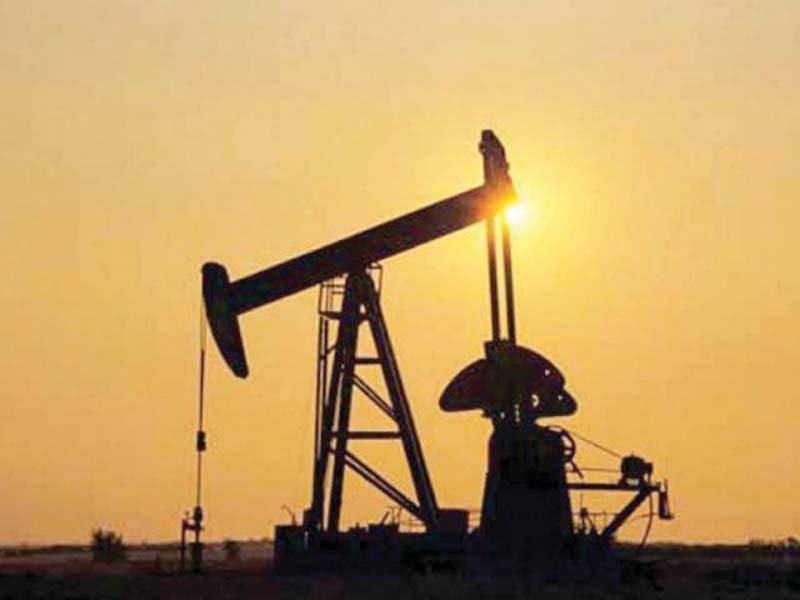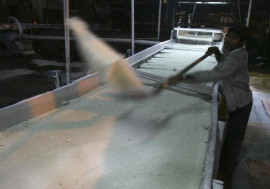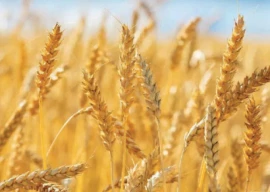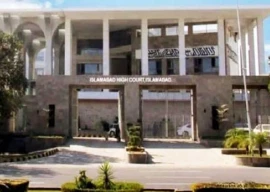
Pakistan Petroleum Limited (PPL) announced on Monday the discovery of 4.5 million standard cubic feet of tight gas per day, which is minuscule when compared with the overall shortfall of around three billion cubic feet per day (bcfd).
The discovery is just one step towards a lengthy journey as seismic data proves Pakistan holds 10,159 trillion cubic feet (tcf) of shale (tight) gas reserves and 2,323 billion barrels of oil reserves, according to a study Pakistan government conducted along with USAID in January 2014.
Senate session: Rabbani wants details of ‘WB-sponsored bill’
PPL’s share price increased 0.58%, or Rs1.19, to Rs207.10 with a volume of 457,800 shares at the Pakistan Stock Exchange (PSX). There is no difference between the two types of gas - tight and natural - in terms of consumption. However, “tight gas has remained unusable in Pakistan due to its different properties (during production). We need to employ new technology to make it part of our system,” Topline Securities’ analyst Nabeel Khursheed told The Express Tribune.
However, efforts aimed at tapping tight gas deposits were welcome at a time when reserves of conventional natural gas in the existing big fields like Sui and Mari were depleting at a pace of 3-4% per year, he said.
Pakistan needs 7 bcfd of gas to meet its requirement. Of this, 3.9 bcfd is covered by domestic production and 1.2 bcfd comes through imports. The rest of the demand cannot be met.
PPL Chief Executive Officer Wamiq Bukhari said in the past the company was targeting shale gas to ensure energy security in the country.
Oil and gas exploration and production companies around the world are adopting new, more efficient and less expensive technology to make tight gas commercially viable.
Estimates suggest shale gas production was 25-50% costlier than conventional gas in the US in the recent past.
Outlook
In future, “PPL plans to work on two additional tight gas discoveries to establish commercial viability,” Bokhari said in a statement.
“The company’s effort in tapping unconventional reservoirs has the potential to add substantial reserves to Pakistan’s hydrocarbon base,” he added. “PPL strives to establish commercial viability of unconventional discoveries,” the company said in a notification to the PSX.
In order to explore tight gas in the lower Indus Basin, the company drilled a well in the Naushehro Feroze exploration lease. Tight gas potential was confirmed through drilling and testing of first well Naushehro Feroze X1 (NF X-1).
NF X-1 is in the Naushehro Feroze block, Sindh, with PPL as operator holding 90% working interest and the remaining 10% is held by Asia Resources Oil Limited.
Market watch: Dull trading persists as KSE-100 falls slightly
Owing to the tight nature of the reservoir, this discovery initially did not appear commercially viable. After detailed analysis and numerous sub-seismic geological and reservoir modelling, PPL re-drilled the well horizontally to a total length of 4,940 metres and completed it with state-of-the-art multi-stage fracking technology.
This well made history in Pakistan by becoming one of the deepest and longest horizontal wells in the tight carbonate reservoir.
“Later, all ten stages were stimulated (frac/acid) and successfully tested at 4.5 mmscfd,” the company said.
Sui mining
In another development, the firm announced at the PSX, “The federal government has allowed the company to continue production from the Sui mining Lease for a further period of six months with effect from December 1, 2017.”
Published in The Express Tribune, January 2nd, 2018.
Like Business on Facebook, follow @TribuneBiz on Twitter to stay informed and join in the conversation.













































COMMENTS
Comments are moderated and generally will be posted if they are on-topic and not abusive.
For more information, please see our Comments FAQ